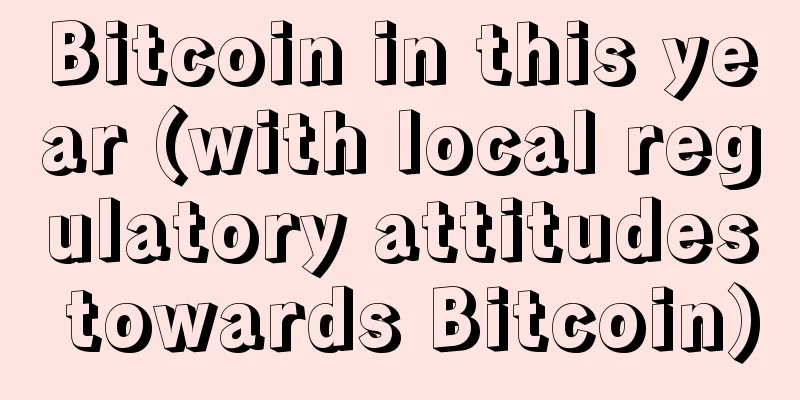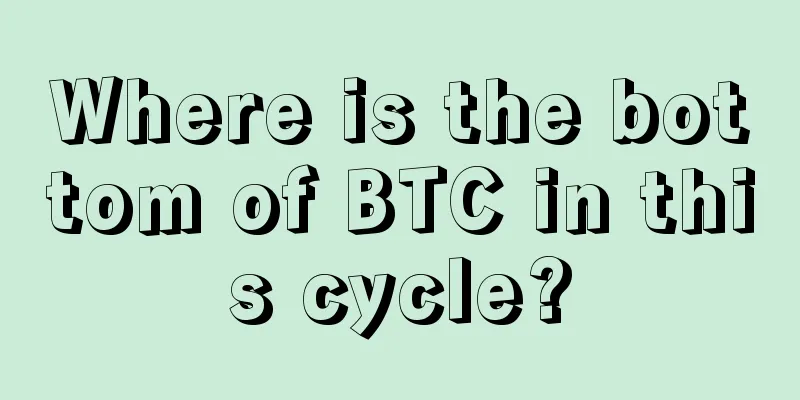|
From the perspective of "causing trouble" or "regulation", digital currencies represented by Bitcoin have been relatively "low-key" this year.
Digital currency has been silent for a year, and only at the end of the year did some accusations of money laundering arise due to the Islamic State (IS) and MMM Mutual Finance.
The attitudes of local governments and regulatory authorities are still mostly in the "under investigation" and "under evaluation" stages. Except for Bitlisence in New York State, actual regulatory measures have not been introduced.
When Bitcoin appreciated sharply at the end of 2015, some people believed that it was related to money laundering by terrorist organizations and MMM pyramid schemes involving Bitcoin.
According to Germany's Der Spiegel magazine, the G7 plans to strengthen supervision of digital currencies such as Bitcoin, suspecting that IS is using Bitcoin to secretly transfer funds.
After the Paris terrorist attacks, the European Commission also publicly stated that it was evaluating whether digital currencies such as Bitcoin would be used for terrorism and money laundering.
As a further example, a hacker group anonymously named GhostSec said on November 16 that its members found evidence of Bitcoin financing in the IS network. According to the statement, IS has a Bitcoin wallet (account) with about $3 million worth of Bitcoin.
The model of MMM is to divide participants into "helpers" and "help seekers", and pair the two together. Investors first provide funds to "help seekers" as "helpers", and then obtain a virtual item called "Mavro"; after 15 days, participants can pair up with new "helpers" as "help seekers" and sell "Mavro" for cash.
For members, the most attractive thing about MMM is its flexible investment, super high returns, and short-term cashing out: starting from 60 yuan, you can get 1% interest every day, you can apply for cashing out after 15 days, and you must exit and reinvest after 30 days at most. Calculated based on a rolling investment with a monthly interest rate of 30%, the total principal and interest after one year is about 23.3 times the original principal.
MMM uses Bitcoin for transactions. It was found that nearly 2.9 million Bitcoins were traded in the exposed Bitcoin account of MMM alone. Based on a rough calculation based on the current price of 2,500 yuan per Bitcoin, its total value exceeds 7 billion yuan.
The China Banking Regulatory Commission's Office of Non-bank Financial Affairs issued a risk warning for MMM, saying that "this type of operation model violates the law of value, and it is difficult to maintain long-term capital operation. Once the capital chain is broken, participants will face serious losses."
Another major event in the cryptocurrency world in 2015 was that New York State took the lead in launching Bitlisence, which is a regulatory approach to digital currencies that requires licenses to enter the market. The review was conducted in the first half of 2015 and the formal implementation was carried out in the second half.
Although New York State is at the forefront of digital currency regulation, it still cannot avoid market accusations of over-strict regulation and stifling innovation.
The result of the official launch of BitLicense is that some companies in New York State are preparing to apply for licenses, while more companies are moving out of New York.
Because the regulatory regulations of BitLicense are higher than those of banks. The main provisions include: all employees and founders of Bitcoin companies must undergo background checks and submit fingerprints to the FBI; provide a US dollar trust account; personal transactions exceeding US$10,000 must be notified to the relevant management agency; written permission is required for business activities; a security response mechanism must be established; quarterly financial reports must be provided; and transaction records must be kept for ten years.
In the era of Internet finance (known as fin-tech abroad), how should digital currency be regulated?
In 2014, the People's Bank of China implemented stricter supervision on digital currencies represented by Bitcoin, but did not make any further clear statements in 2015.
The central bank made it clear in the "China Financial Stability Report 2014": Bitcoin is not a real currency.
The reasons include that Bitcoin has no national credit support, is not legal tender or compulsory; there is an upper limit to its scale, making it difficult to adapt to the needs of economic development; there is a lack of a central regulatory mechanism, which makes it easy for it to be over-hyped, leading to drastic price fluctuations, and it cannot become a unit of account or a means of circulation; it is highly substitutable and difficult to serve as a general equivalent.
The central bank is worried that online Bitcoin trading platforms are prone to price manipulation and false transactions; Bitcoin prices lack reasonable support and can easily become a tool for speculation; Bitcoin transactions are highly concealed, anonymous, and not subject to geographical restrictions, facilitating illegal and criminal activities such as drug and gun trafficking and money laundering.
The central bank has also issued two notices to prevent Bitcoin risks.
In December 2013, the People's Bank of China announced on its website that Bitcoin is an "illegal currency" in China. The central bank has jointly issued a "Notice on Preventing Bitcoin Risks" with four ministries, requiring all financial institutions and payment institutions not to conduct Bitcoin-related businesses, and reminding the public not to participate in speculation.
In mid-March 2014, the central bank issued a notice to all branches entitled "Notice on Further Strengthening Bitcoin Risk Prevention", which required all banks and third-party payment institutions to close all trading accounts of more than ten domestic Bitcoin platforms. This means that it is illegal for financial institutions to open trading accounts for Bitcoin website platforms. Unless it is a cash transaction, Bitcoin investors cannot make bank transfers or third-party payments for transactions in China.
Hong Kong, China: There is no need to regulate Bitcoin "In March of this year, the Hong Kong government officially issued a statement saying that "Bitcoin does not pose a significant threat to the financial system." At the end of 2013, the Hong Kong Monetary Authority publicly announced that Bitcoin does not fall under its jurisdiction.
Hong Kong's Financial Services Department and the Ministry of Finance believe that "there is no need to pass legislation to regulate virtual goods trading or prohibit people from participating in such activities." Taiwan: Remaining Neutral on Bitcoin
Taiwan’s Financial Supervisory Commission (FSC) issued a recent statement in November, stating that it remains neutral on the issue of Bitcoin regulation.
Previously, the media had widely reported that the FSC would list Bitcoin as an illegal payment tool. Moreover, the FSC believes that Bitcoin is not a legal tender, so Bitcoin transactions should be considered as virtual commodity transactions. If consumers are defrauded due to Bitcoin transactions, the "Consumer Protection Law" will apply; if someone uses Bitcoin to launder money, the "Money Laundering Prevention Law" will apply. California: Bitcoin is legal "In March 2015, the California Assembly approved a bill called AB 1326, which requires digital currency companies to be regulated in a similar way to banks. For example, Bitcoin. This also makes it clear that Bitcoin businesses will operate under licensing guidelines.
Under the bill, not only Bitcoin, but all forms of alternative digital currencies will be legalized.
If approved by the California Senate, the bill will take effect on January 1, 2016. The bill stipulates that the registration fee for applying for a California Bitcoin license is $5,000 and the annual fee is $2,500. Russia : Those who exchange Bitcoin for rubles may be sentenced to four years in prison. The Russian Central Bank has said it will take opposing measures and will regard the use of Bitcoin as inappropriate behavior, a view also supported by Russian Prime Minister Vladimir Putin .
For more than a year, the Russian Federation’s Ministry of Finance, the country’s economic legislative body, has repeatedly and firmly opposed allowing Bitcoin to be used as an alternative to government-issued currency.
Russia’s deputy finance minister said the ministry is working on a draft law that would impose four-year prison sentences on those who convert cryptocurrencies into rubles. Ecuador: Banning Bitcoin and establishing a national digital currency "In 2014, the National Assembly of Ecuador passed a bill to amend the country's existing monetary and financial laws. The bill bans Bitcoin and other decentralized digital currencies, and will issue digital currencies backed by the country's central bank and domestic liquidity. It will be backed by the country's central bank and integrated into its extensive financial system and supervised by the National Assembly. The number of issuances will depend on the needs of the country's citizens.
The bill stipulates that "all public and private institutions must participate in the construction of the electronic money system together with cooperative financial institutions." Financial institutions must provide electronic settlement options for "all existing services and services that may be provided in the future." Therefore, every bank must open an account under the state-owned electronic money system.
Ecuador’s official currency is the U.S. dollar, so the e-money will be “equivalent to and redeemable for U.S. dollars.”
The resolution states that the goal of the electronic money system is to "enhance the efficiency of the payment system and contribute to the country's economic stability." Bolivia: Bans All Digital Currencies “The Central Bank of Bolivia officially banned any currency not issued or managed by the government in 2014.”
This is the first announcement from the country’s central bank on digital currency: “It is illegal to use any currency that is not issued and controlled by a government or an entity authorized by (the government).”
The country’s central bank issued a statement on digital currencies, saying that “it is illegal to use any currency that is not authorized and controlled by the government” and “citizens are prohibited from pricing any currency that is not approved by the state.”
|










